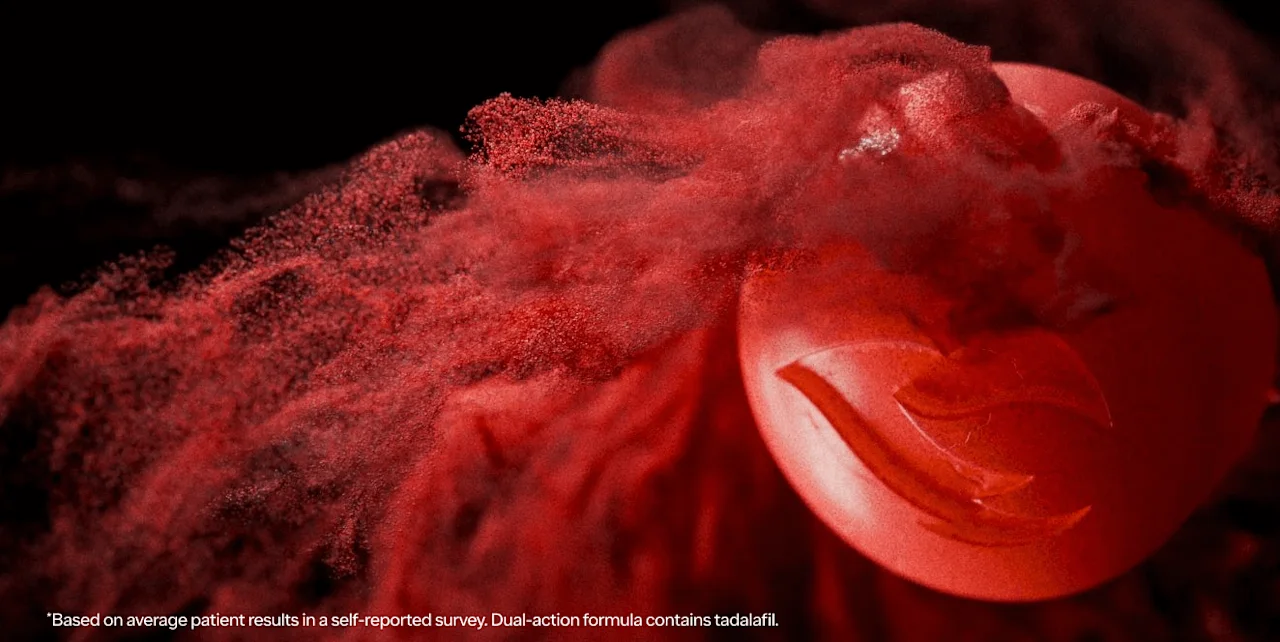Here's what we'll cover
Here's what we'll cover
Here's what we'll cover
Many men are concerned with their penis size, and those worries can get especially intense if you think your penis might be getting smaller over time. While uncommon, penis shrinkage can occur due to a wide variety of reasons. In most cases, changes in penis size are too small to be noticeable. If you’re concerned about penis shrinkage, keep reading to learn more—but remember, the shortening of the length of your penis won’t affect your ability to have an active, satisfying sex life.
Can your penis shrink?
Penis shrinking does happen to some men, but it’s usually a temporary reaction to the cold or other stressors. Aging can be a factor, too. But most men don’t need to be concerned about losing penile length or girth. Some men may experience a psychological phenomenon called “koro,” which is an extreme state of anxiety that their penis is shrinking or disappearing (Mattelaer, 2007).
Regardless of the cause, it’s worth speaking with your healthcare provider to make sure there’s nothing else going on, as there are some medical conditions and treatments that can affect penis size.
Does your penis shrink with age?
As men get older, they may experience a variety of age-related issues that interfere with the normal functioning of their penis and their ability to get an erection. These issues can then lead to penis shrinkage, sometimes known as penile atrophy.
Benign prostatic hyperplasia (BPH), or an enlarged prostate, is a common condition that happens to men as they age. This condition can cause uncomfortable urinary symptoms, such as blocking the flow of urine out of the bladder. It can also cause bladder, urinary tract, or kidney problems. Though there are other options for treatment, including medications and other minimally invasive procedures, you may opt for surgery if the symptoms of BPH bother you and you are looking for a permanent solution (Ng, 2022). Studies have shown that some men who undergo prostate surgery may notice a shortening of their penis (Gontero, 2007).
While erectile dysfunction (ED) is not a confirmed cause of penis shrinkage, some evidence suggests that ED may be a risk factor. (Dillon, 2008).
What could cause penile shrinkage?
In addition to aging, there are a number of other causes of penis shrinkage.
Peyronie’s disease
Peyronie's disease is a condition where scar tissue develops on the penis and causes a curved penis. While having a curved penis isn’t necessarily a cause for concern, this condition can cause painful erections in some men. It can also make intercourse difficult or impossible. Peyronie’s disease can decrease both the length and girth of a man’s penis. Sometimes, Peyronie’s disease will go away on its own. However, most cases likely need treatment, either with medications, surgery, or a combination of therapies (Egydio, 2013).
Abdominal weight gain
As people get older, it’s more common for the distribution of their body fat to shift more toward the stomach (Hunter, 2010). In men, this particular type of weight gain can cause the penis to appear smaller, though it has not actually shrunk. It may look smaller because the penis is attached to the abdominal wall, and when the belly expands, it can pull the penis inwards. Additionally, the fatty deposits that have accumulated in the stomach may also cover the shaft of the penis. If this is a factor, losing weight can help restore the size and shape of the penis.
Prostate treatment
For men who have had cancerous prostate gland removal surgery, also known as radical prostatectomy, research shows that this can shorten the length of the penis (Dillon, 2008). Researchers are not clear on exactly why this happens but think it may be related to the urethral tube, which connects to the urinary bladder, which shortens during the prostatectomy. Some medical treatments for prostate cancer can also cause penis shortening (Haliloglu, 2007)
How to make your penis bigger
Some causes of penis shrinkage, like weight gain, can be reversed by making lifestyle changes. If you are taking certain medications that may cause your penis to shrink, talk to your healthcare provider about adjusting your medication regimen.
If you have experienced penile shortening as a result of prostate surgery, the condition may improve on its own in a few months or a year. Vacuum erection devices, or penis pumps, may help penis shrinkage after prostate cancer treatment (Pahlajani, 2012).
Treating ED may also be an option to improve erectile function, if not size. Penile rehabilitation is a form of physical therapy for men that can help them regain the ability to produce erections. There are also medications available, such as Viagra (sildenafil) and Cialis (tadalafil), that increase blood flow to the penis to help with erectile dysfunction, though they won’t make the penis bigger (Nicolai, 2021).
Many men are worried about the size of their penis, even though most men are completely within the normal range of penis size. Aside from treating the causes of penis shrinkage, there are other ways you can make your penis bigger, ranging from surgery and injections to implants and extenders.
Remember, most men who experience a small degree of penis shrinkage—no matter the cause—are still able to enjoy a satisfying and fulfilling sexual life. If you have any pain, performance issues, or feel dissatisfied with your penis, know that you can and should feel empowered to have that conversation with your healthcare provider. They are there to talk about all aspects of your health with you—including your penis.
DISCLAIMER
If you have any medical questions or concerns, please talk to your healthcare provider. The articles on Health Guide are underpinned by peer-reviewed research and information drawn from medical societies and governmental agencies. However, they are not a substitute for professional medical advice, diagnosis, or treatment.
Viagra Important Safety Information: Read more about serious warnings and safety info.
Cialis Important Safety Information: Read more about serious warnings and safety info.
References
Dillon, B. E., Chama, N. B., & Honig, S. C. (2008). Penile size and penile enlargement surgery: a review. International Journal of Impotence Research, 20 (6), 519–529. doi:10.1038/ijir.2008.14. Retrieved from https://pubmed.ncbi.nlm.nih.gov/18496548/
Egydio, P. H., Kuehhas, F. E., & Sansalone, S. (2013). Penile length and girth restoration in severe Peyronie's disease using circular and longitudinal grafting. BJU International, 111 (4 Pt B), E213–E219. doi:10.1111/j.1464-410X.2012.11582.x. Retrieved from https://bjui-journals.onlinelibrary.wiley.com/doi/10.1111/j.1464-410X.2012.11582.x
Gontero, P., Galzerano, M., Bartoletti, R., et al. (2007). New insights into the pathogenesis of penile shortening after radical prostatectomy and the role of postoperative sexual function. The Journal of Urology, 178 (2), 602–607. doi:10.1016/j.juro.2007.03.119. Retrieved from https://pubmed.ncbi.nlm.nih.gov/17570431/
Haliloglu, A., Baltaci, S., & Yaman, O. (2007). Penile length changes in men treated with androgen suppression plus radiation therapy for local or locally advanced prostate cancer. The Journal of Urology , 177 (1), 128–130. doi:10.1016/j.juro.2006.08.113. Retrieved from https://pubmed.ncbi.nlm.nih.gov/17162022/
Hunter, G. R., Gower, B. A., & Kane, B. L. (2010). Age related shift in visceral fat. International Journal of Body Composition Research , 8 (3), 103–108. Retrieved from https://www.ncbi.nlm.nih.gov/pmc/articles/PMC4018766/
Mattelaer, J. J. & Jilek, W. (2007). Koro--the psychological disappearance of the penis. The Journal of Sexual Medicine , 4 (5), 1509–1515. doi:10.1111/j.1743-6109.2007.00586.x. Retrieved from https://pubmed.ncbi.nlm.nih.gov/17727356/
Nicolai, M., Urkmez, A., Sarikaya, S., et al. (2021) Penile rehabilitation and treatment options for erectile dysfunction following radical prostatectomy and radiotherapy: a systematic review. Frontiers in Surgery, 8 , 636974. doi:10.3389/fsurg.2021.636974. Retrieved from https://pubmed.ncbi.nlm.nih.gov/33738297/
Ng, M. & Baradhi, K. M. (2022). Benign prostatic hyperplasia. StatPearls . Retrieved on Dec. 7, 2022 from https://www.ncbi.nlm.nih.gov/books/NBK558920/
Pahlajani, G., Raina, R., Jones, S., et al. (2012). Vacuum erection devices revisited: its emerging role in the treatment of erectile dysfunction and early penile rehabilitation following prostate cancer therapy. The Journal of Sexual Medicine, 9 (4), 1182–1189. doi:10.1111/j.1743-6109.2010.01881.x. Retrieved from https://pubmed.ncbi.nlm.nih.gov/21054791/
Sighinolfi, M. C., Mofferdin, A., De Stefani, et al. (2007). Immediate improvement in penile hemodynamics after cessation of smoking: previous results. Urology, 69 (1), 163–165. doi:10.1016/j.urology.2006.09.026. Retrieved from https://www.goldjournal.net/article/S0090-4295(06)02150-9/fulltext
Veale, D., Miles, S., Bramley, S., et al. (2015). Am I normal? A systematic review and construction of nomograms for flaccid and erect penis length and circumference in up to 15 521 men. BJU International, 115 (6), 978–986. doi:10.1111/bju.13010. Retrieved from https://bjui-journals.onlinelibrary.wiley.com/doi/10.1111/bju.13010










